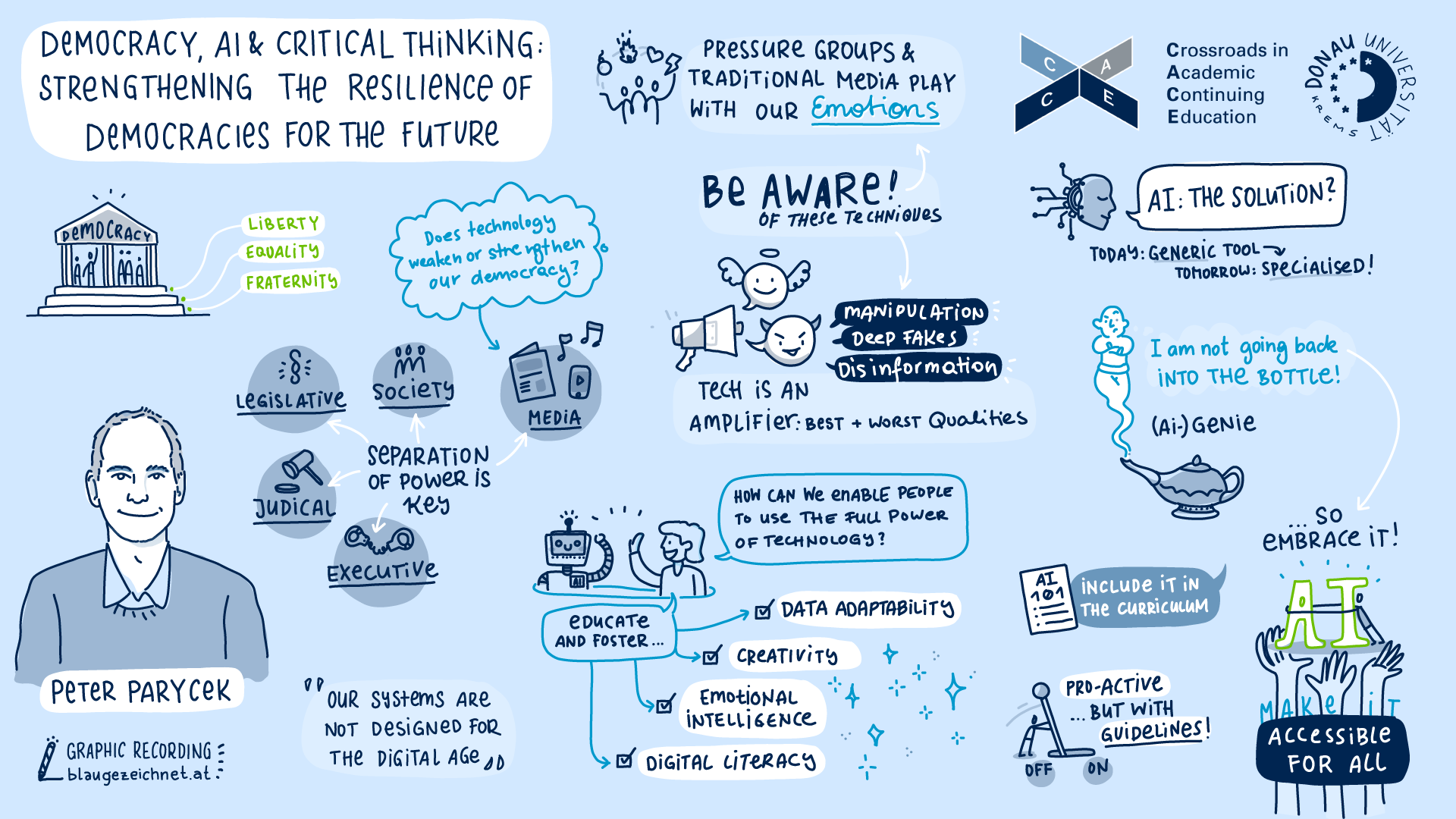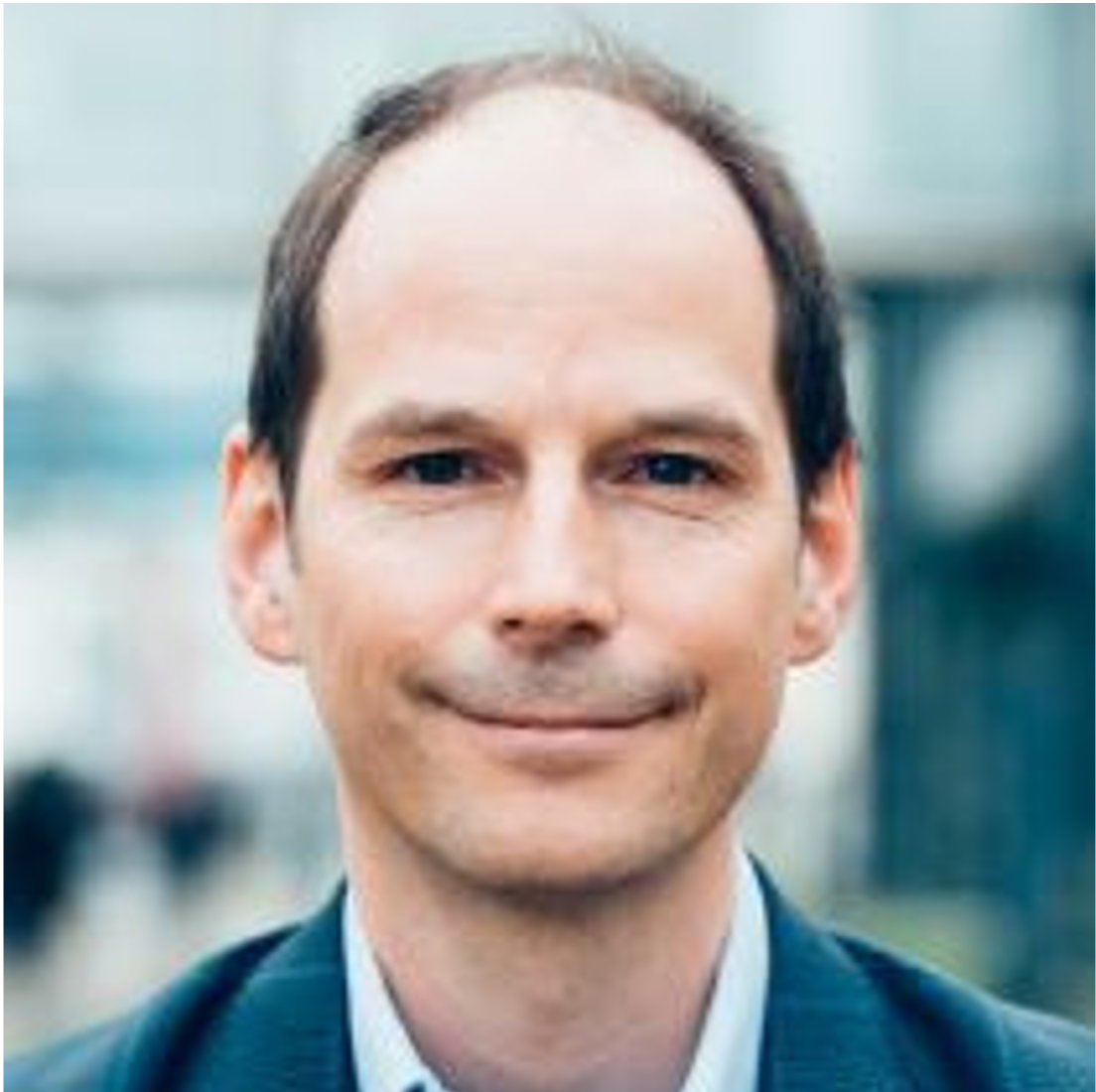
Do new technologies strengthen or weaken democracy? Peter Parycek, Vice-Rector for Teaching and Academic Continuing Education and Digital Transformation at the University for Continuing Education Krems, addresses this key question. In his keynote speech at CACE, he begins by examining the foundations of democracy: freedom, equality and fraternity or solidarity. He also recalled that democracy is characterized by the principle of the separation of powers - in other words, state power is divided between the legislative (lawmaking), executive (executive power) and judicial (jurisdiction) branches. The fourth power is the media, the critical “watchdogs” of politics, and the fifth power is society.
The fourth power in particular has become stronger in recent years, explains Parycek. In the digital age, more and more people are able to act as watchdogs themselves. Initially, there was hope that technology could strengthen democracy. However, Parycek's in-depth study of the topic led to a more nuanced insight: technologies are neither good nor bad in themselves - they merely reinforce human nature, both in its positive and negative manifestations.
One of the biggest challenges at the moment, the polarization of society, is not primarily caused by technology: “People are specifically looking to interact with like-minded people - whether in the digital world or in the real world,” explains Parycek. The more decisive factor is people's emotions and the emotionalization of public discourse. The media are increasingly relying on emotions to gain attention, which is problematic. As an example, the expert cites the Brexit campaign or the last US elections, both of which were characterized by emotional messages. Artificial intelligence (AI) acts as a catalyst for this development.
Parycek sees another challenge in the rapid pace of change driven by technology. “Our social systems, such as the education system or politics, are not geared towards this and cannot keep up.” This leads to fear and uncertainty, which are not good conditions in difficult times. At the same time, the knowledge gap between well-educated and less well-educated people is widening, as the former can use digital tools more competently.
Parycek sees artificial intelligence as a possible solution to these challenges. AI could usefully complement human skills, as it works in a completely different way: While humans bring emotional skills, creativity and adaptability to the table, AI is more objective and capable of making quick decisions as well as consistently high performance. “The respective strengths of humans and machines are therefore extremely compatible,” emphasizes Parycek.
The Vice-Rector believes that education plays a crucial role in ensuring that humans and machines can work together optimally. Parycek highlights three skills that need to be specifically promoted: digital sovereignty, cognitive skills and emotional and ethical skills.
“I am convinced that education can and must enable people to master the challenges of the digital age,” summarizes Parycek. Education is an important basis for shaping cooperation between humans and artificial intelligence - and for upholding the democratic values of freedom, equality and solidarity. His vision is for everyone to be able to use technology in such a way that it promotes the best in us and does not reinforce the worst.
About Peter Parycek

Peter Parycek heads the Department for E-Governance in Business and Administration at the University for ContinuingEducation Krems (Danube University Krems). In 2021 he was elected Vice-Rector for Educational Affairs / Academic Continuing Education and Digital Transformation (CDO) of the University for Continuing Education Krems by the University Council and held this position until February 2025.
Since July 2017, he has been leading the Competence Center Public IT (ÖFIT) at the Fraunhofer Fokus Institute Berlin, funded by the German Federal Ministry of the Interior. In 2018, he was appointed to the Digital Council of the German Federal Government by Chancellor Angela Merkel. The nine-member body of international experts advised the Germanfederal government in direct dialog. Since March 2025 he is leading the digital transformation of RBB (Berlin-Brandenburg Broadcasting).